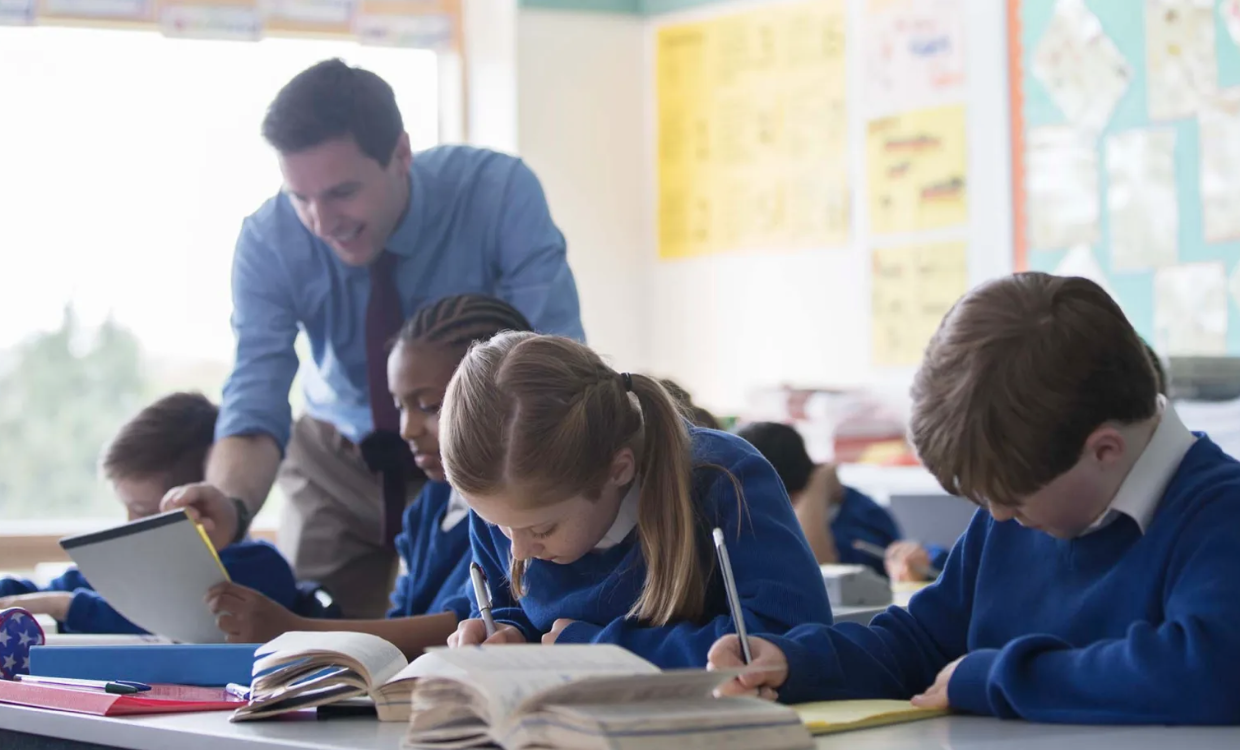By: Adam M. Carrington – nationalreview.com –
Classical education is not a threat. Don’t bash it. Let it thrive as a good for our republic.
Is education Republican or Democrat, conservative or progressive? In a rightly ordered system, it should be neither. Instead, education in our country should be human and American. It should teach us the elements of human nature and the prospects for human achievement. It should instruct students about America’s history and its ideals.
But we don’t see education this way. Instead, many view schooling as part of a partisan and culture war that consumes so much of our public discourse. Some on the political right see our public-school system as a Democratic or progressive indoctrination project. Swaths of the Left see alternative forms of education, including homeschooling and charter and private schools, as inculcating Republican or conservative ideals.
Some of these accusations arise from true problems in our education system. Too many public schools use a curriculum that confuses browbeating for earnestness, and indoctrination for instruction. Still, that point can be overstated, as many public schools continue to give a solid education in tried and true ways.
However, one lens of criticism on the Left has involved unfair and untruthful smearing. That criticism comes against against classical education, a growing learning approach in many private and charter schools and homeschooling systems. This approach to learning has faced withering attacks from those who characterize it as a mere partisan ploy to achieve some combination of Republican electoral victory and Christian theocratic hegemony.
Classical education, like liberal education, begins from a perspective of respect, not of politics. It avoids the “chronological snobbery” that privileges today’s ideas, writings, and methods over those of the past. Instead, classical education sees great wisdom in our ancestors’ words, writings, and deeds.
This wisdom can be found in many times, places, and persons. We see in the Greeks the birth of philosophy, wherein men such as Plato and Aristotle sought to understand universal truths by studying the human beings around them. In Judaism and Christianity, we find the search for the origins of existence and the ultimate meaning of life. Elizabethan England gave our language its particular beauty, especially in the plays of Shakespeare and the King James Version of the Bible. In America, we see a political system dedicated to human liberty and equality, along with the brilliant institutional structures of federalism and separation of powers found in The Federalist Papers and the U.S. Constitution.
These pursuits are not particular to those moments or men. We all ask how to understand truth, meaning, and principles for human flourishing. In the past, we can find the “greatest hits” that teach us better to answer those questions for ourselves.
This respect need not and should not morph into blind adoration and imitation of the past. The past is filled with mistakes and evils. We should not only acknowledge and critique those wrongs. Classical education does not flinch from describing the horrors of chattel slavery, religious violence, or other forms of despotism that litter the historical landscape. But we should not ignore them. Nor should we condemn them in a posturing pose of virtue-signaling. On the contrary, we should study them to avoid repeating them. Classical learning seeks a thoughtful appraisal and appropriation of the best mixed with avoidance of the worst in the past.
In light of these goals, does classical education require a partisan bent? By no means. Classical education involves a certain kind of conservatism. In its respect for the past it seeks to conserve the good found in principles and institutions that have accrued throughout human history. At the same time, classical learning must involve a progressive element. No systems or deeds from the past can be copied and pasted into our own time. We must seek new ways to realize the old truths, new ways that we hope move us toward a greater realization of justice, beauty, and truth.
Let us hope such an approach isn’t conservative or progressive in a social or political sense. To say so would condemn one side as standing against human nature and American principles. Instead, classical education can inform the debates in our political and cultural contests. Again, it can teach us about ourselves as human beings and citizens. It can give us the broader perspective needed to debate wisely the content of our common good and the possibilities for a better future. Don’t bash classical education as a threat. Let it thrive as a good for our republic.
To see this article in its entirety and to subscribe to others like it, please choose to read more.
Source: Classical Education Is Human and American, Not Partisan | National Review
 Listen Online
Listen Online Watch Online
Watch Online Find a Station in Your Area
Find a Station in Your Area






 Listen Now
Listen Now Watch Online
Watch Online
